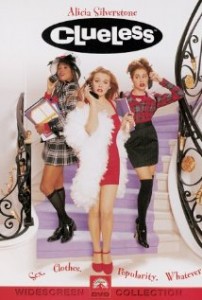The Austen Project from Harper Collins is now fully under way, pairing “six bestselling contemporary authors with Jane Austen’s six complete works,” according to the introductory blurb. “Taking these well-loved stories as their base, each author will write their own unique take on Jane Austen’s novels.” The first in the series, Sense and Sensibility, reimagined in a contemporary setting by Joanna Trollope, has just gone live, to generally good reviews. Next in line is Northanger Abbey, from Val McDermid. But do we need them?

“‘It’s hugely exciting to attempt the reworking of one of the best novels written by one of our greatest novelists. This is a project which requires consummate respect above all else; not an emulation, but a tribute,” writes Joanna Trollope. Broadly, the consensus so far is that she’s succeeded. It would be interesting to get inside the Harper Collins editorial office to see what the original brief looked like, and how far this recreation was left to Trollope’s own artistic discernment, but it appears she has lived up to her words. And at least it makes a change from [easyazon-link asin=”B004HW7E6U” locale=”us”]Pride and Prejudice and Zombies (Quirk Classics)[/easyazon-link].

As the walking dead example shows, this is hardly the first time that Jane Austen has been successfully updated. Clueless is the standout example – transposing Emma effortlessly to Beverly Hills, still referenced by fans as “one of the most endlessly quotable movies of the past two decades,” and turning Alicia Silverstone into an iconic figure. I’m not sure if Joanna Trollope’s English settings are going to match up to sheath dresses and muggings, but the smart writing of Clueless shows how a powerful original can inspire and transmit its strength centuries later. Clueless might even end up being the more faithful tribute to the spirit of the original.
And incidentally, there is obviously no way that traditional publishing is terminally digitally disrupted if Harper Collins still has the money to throw away on stunts like this, and if readers are prepared to pay to read the results. With all the self-published and freebie literature around, including the original Austen texts themselves available for nowt/zilch/zippo, a major publisher has enough faith to put its promotional firepower behind such a project – and even reviewers seem to be buying in as well.
What these rewrites can’t give us, though, however successful, is Jane Austen’s cultural and intellectual significance. Beyond the lace-and-Darcy world of the Janeites, you have a whole different breed of Jane Austen fans who rate her as a moral thinker and a landmark in British – or global – cultural development. Some might argue that that kind of dimension is too forbiddingly highbrow, and too far removed from the cliche romance aspects of Austen, to really hold the key to her popularity. But I suspect that the firm intellectual underpinnings of Austen’s work are exactly the reason why it’s lasted. You don’t have to understand every word of something, or appreciate its entire significance, to feel that it’s been done right.
































